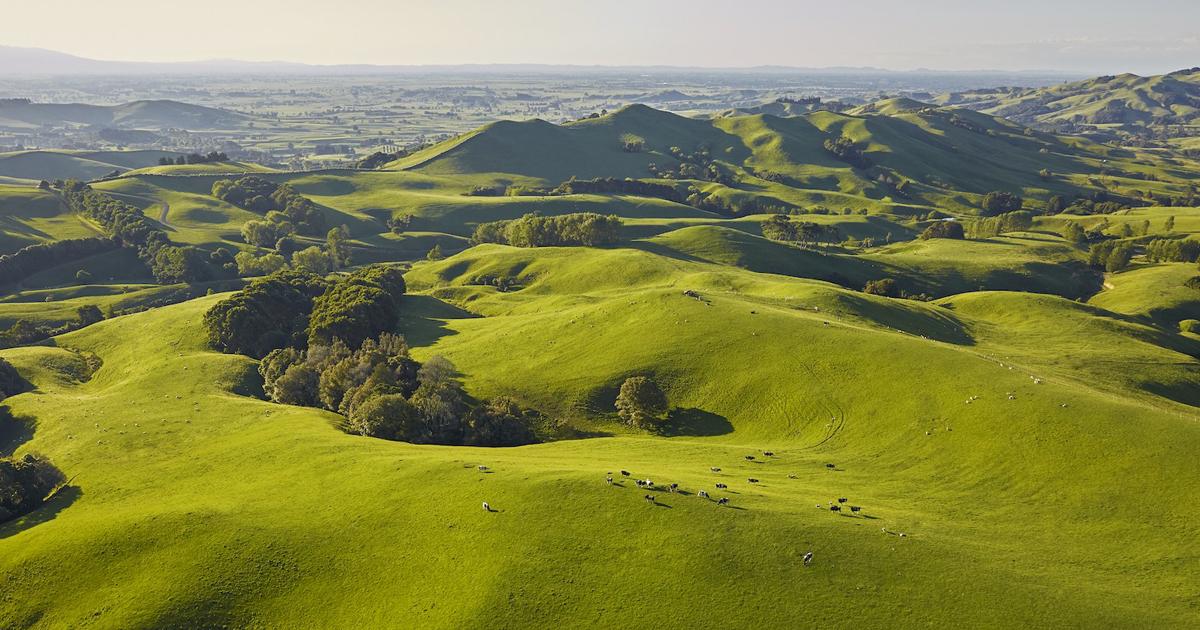While livestock farming typically comes with a higher greenhouse gas (GHG) footprint, New Zealand’s moves to embrace regenerative agriculture positions farmers to cut these impacts down to size.
As nations around the world seek to measure, manage and mitigate their greenhouse gas emissions, many have their eyes focused on the agricultural industry, and New Zealand is no exception. With the New Zealand government’s proposed tax on agricultural emissions, a world first, the local farming industry is now faced with additional considerations to achieve these sustainability goals.
More than 118,000 people work in New Zealand’s agricultural sector. The country’s booming kiwi business produces about 30 percent of the kiwifruits sold worldwide. Other staple crops include wheat, barley, wine grapes and avocados, but the country’s top agricultural exports center on livestock like sheep and beef and dairy cattle.
While livestock farming typically comes with a higher greenhouse gas (GHG) footprint, the country’s moves to embrace regenerative agriculture positions farmers to cut these impacts down to size.
Regenerative agriculture practices reduce the impact of beef and sheep farming in New Zealand
The New Zealand landscape is uniquely suitable for regenerative and grass-fed farming, Beef + Lamb New Zealand, a farmer-owned industry organization representing New Zealand’s sheep and beef farmers, told TriplePundit. With a temperate climate and abundant rainfall, New Zealand pastures are perennial and used in perpetuity, with high-quality grass for both cattle and sheep herds.
These unique characteristics also lend themselves to the regenerative agricultural practice of rotational grazing, and New Zealand farmers have harnessed the power of rotational grazing since the 1970s. The quality of New Zealand pastures allow both sheep and cattle to graze in the same pastures at different stages of the grazing process, utilizing the pastures at maximum efficiency with minimal need for agricultural inputs like fertilizer, feed or other chemicals.
In order to better utilize these unique natural advantages, Beef + Lamb New Zealand aims to help its farmers adhere to sustainable agricultural practices that advance local productivity and increase market returns.
“Building sustainable and profitable businesses is one of the biggest issues our farmers face today and in the future,” Beef + Lamb New Zealand CEO Sam McIvor told TriplePundit. “Farmers and the agriculture industry are some of the most impacted by climate change, so we collectively invest to support our nation of family farmers and ensure their viability today and for future generations.”

